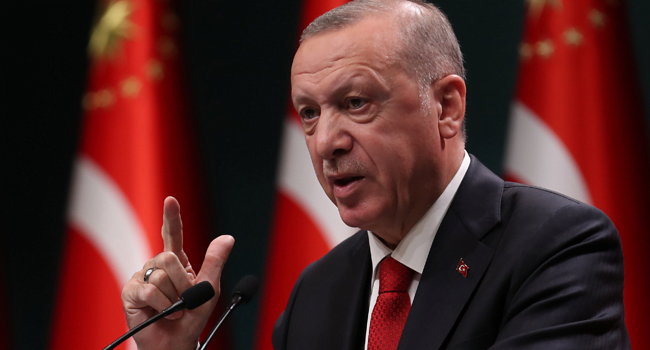Turkey braced on Saturday for a new spell of financial turbulence after President Recep Tayyip Erdogan
A presidential decree published late on Friday gave no explanation as to why Erdogan was replacing Naci Agbal with Sahap Kavcioglu in the key post.
But the decision was announced just a day after the central bank sharply raised the main interest rate to 19 per cent to fight inflation.
Kavcioglu has written columns for a pro-government newspaper heavily criticising Agbal’s propensity to raise rates.
Analysts say the new central banker subscribes to Erdogan’s unorthodox belief that higher interest rates cause inflation.
Most economists believe it slows inflation down by raising the cost of doing business.
“The shock decision by Turkey’s President Erdogan to sack central bank governor Naci Agbal late on Friday is likely to trigger large falls in the
lira when markets open on Monday,” analyst Jason Tuvey of Capital Economics wrote in a research note.
“It looks like the central bank’s efforts to fight the country’s inflation problem may come to an end, and a messy balance of payments crisis has become (once again) a real possibility,” Tuvey warned.
Inflation struggle
Agbal was appointed during an economic team overhaul that Erdogan engineered in November to halt a steep Turkish currency slide.
The lira had by then fallen to 8.5 to the dollar from 5.9 at the start of 2020 as past central bank managers kept interests rates low while inflation gathered pace.
Economists at Goldman Sachs estimated that the central bank spent more than $100 million in 2020 alone buying up foreign currencies in an attempt to support the lira.
But Turks kept stocking up on gold and exchanging liras for euros and dollars to preserve their saving.
Foreign investors fled the Turkish market and the economy appeared headed for a major crisis.
Erdogan appeared to concede defeat and embrace orthodoxy by installing Agbal at the central bank and reformists at the finance ministry in the November reshuffle.
Agbal’s term has seen the lira stabilise. It stood at around 7.3 against the dollar on Friday.
But the lira began to reverse some of its earlier gains in February and the annual inflation rate rose to 15.6 per cent due to external pressure on the Turkish economy.
Agbal’s decision to raise rates by a greater than expected 200 basis points to 19 per cent on Thursday was cheered by investors but appeared to be the last straw for Erdogan.
Kavcioglu’s Yeni Safak newspaper criticised it on its front page on Friday.
‘Paid the price’
Erdogan’s dislike of high interest rates has remained a constant in Turkish politics.
He once called it the “mother and father of all evil” and stressed again in January that he was “absolutely against” higher rates.
His new central banker Kavcioglu suggested in a February column that higher interest rates “indirectly” lead to higher inflation.
Emerging markets economist Timothy Ash called Agbal “a patriot who made the difficult but right choices in the best interests of Turkey at the right times. He has paid the price for that.”
Kavcioglu becomes the fourth central bank chief Erdogan has appointed since July 2019.
He faces the task of meeting Erdogan’s goal of bringing down the annual inflation rate down to five per cent by Turkey’s next scheduled election in 2023.
But Tuvey of Capital Economics said Agbal’s dismissal also carried political risks for Erdogan because some in the president’s ruling party were growing uneasy with his unorthodox approach to economics.
“The sacking of Governor Agbal runs the risk of splitting the party, which had already seen several major players depart in recent years,” Tuvey wrote.
AFP



